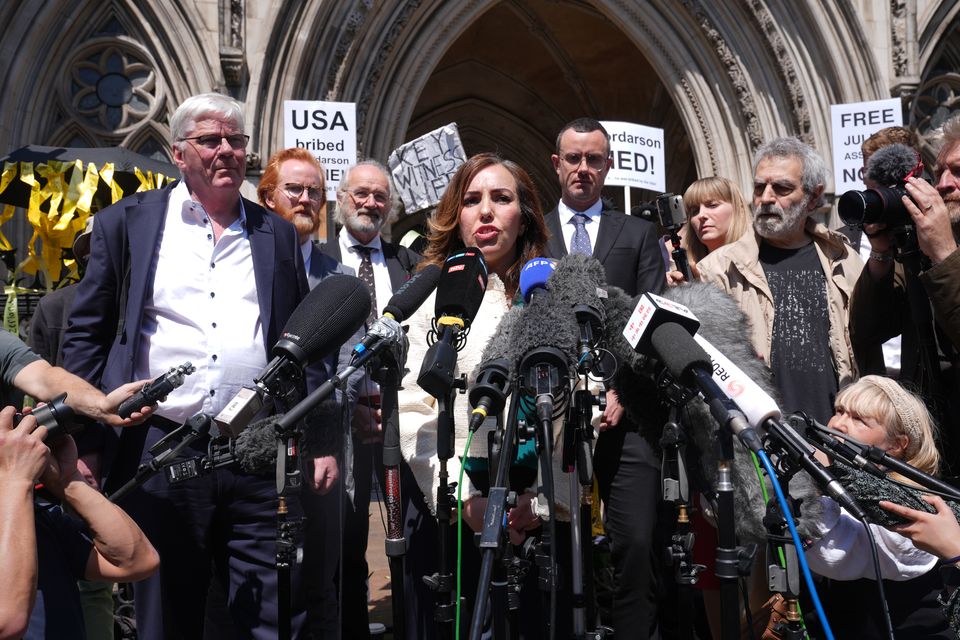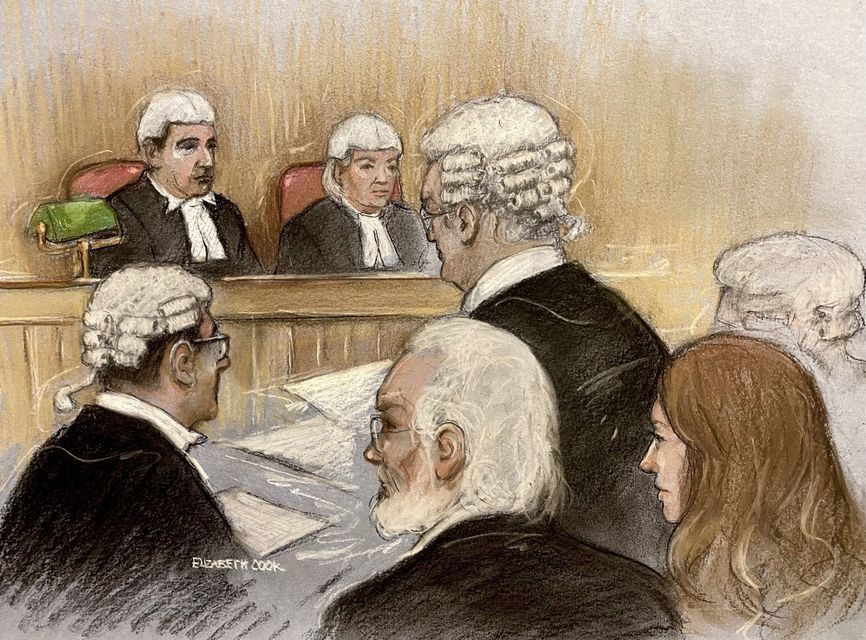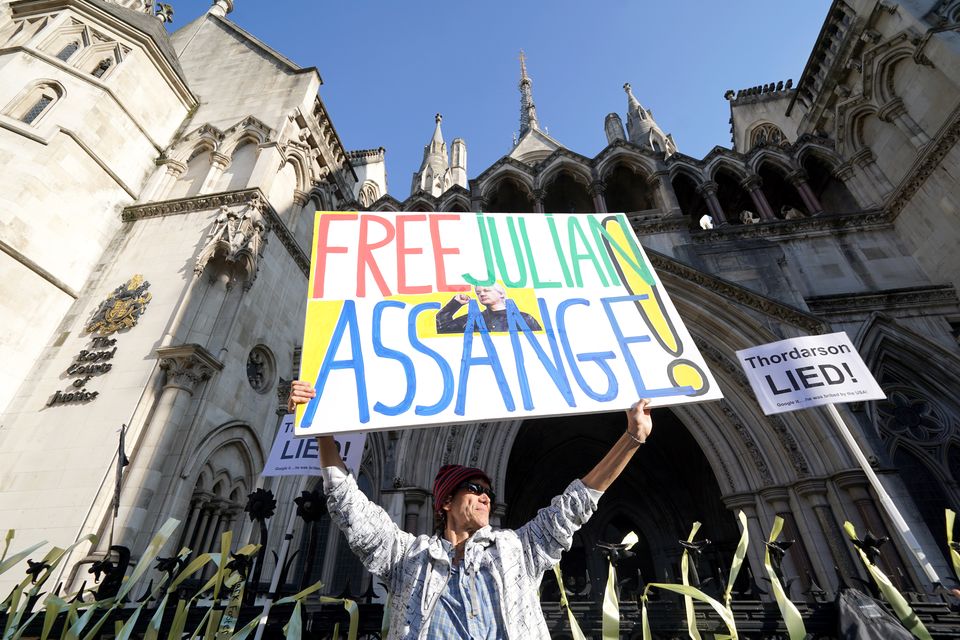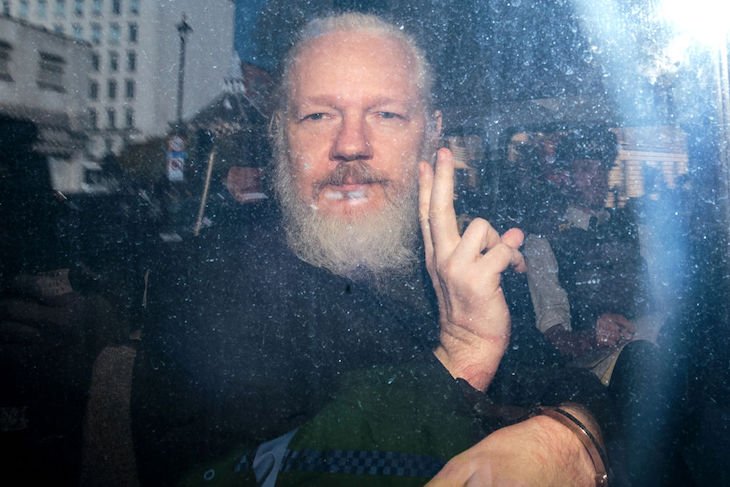Sahil Kapur
Mon, May 20, 2024

''WASHINGTON — The Human Rights Campaign, the largest LGBTQ rights group in the United States, is launching a $15 million commitment to help Democratic President Joe Biden defeat Republican Donald Trump in the 2024 election.
The spending blitz, shared first with NBC News, will cover the six key battleground states of Pennsylvania, Michigan, Wisconsin, Georgia, Arizona and Nevada. The group says it will include paid ads, staff hires, field campaigns and events in those states, which are poised to decide who wins the presidency and Congress.
And after crunching the numbers, the organization sees warning signs in the form of soft support for Biden in the 2024 electorate.
HRC estimates that this year there will be 75 million “equality voters” — who vote based on support for LGBTQ rights — up from 62 million in 2020 and 52 million in 2016. But the group says one-third of them aren’t a lock for Biden. In the six key swing states, hundreds of thousands are “at risk of not voting,” and another group of hundreds of thousands of voters are what HRC refers to as “double doubters” who will likely defect to a third party, according to data HRC shared with NBC News.
HRC President Kelley Robinson said those uncertain voters could make or break Biden’s re-election bid.
“This group of voters, when you break them down by state, can actually make the difference. In a state like Arizona, where President Biden won it by about 10,000 votes, you got 1.4 million equality voters,” Robinson said in an interview. “This is a powerful constituency, a powerful community. It’s our job to make sure that they have the tools that they need to show out to the polls. So we’re going to be knocking on doors, making phone calls, engaging every member that we’ve got to make sure that our people turn out.”
The election carries high stakes for the future of national policy when it comes to lesbian, gay, bisexual and transgender Americans. In his first term, Biden advanced the cause by codifying same-sex marriage nationwide, allowing transgender people in the military and directing agencies to support LGBTQ equality.
Trump, meanwhile, has blasted “left-wing gender insanity” and vowed to roll back government programs backing trans rights and punish doctors who provide gender-affirming care to minors. He has encouraged a growing and well-organized conservative backlash against some parts of the pro-LGBTQ movement, with schools, women’s sports and public bathrooms turning into fronts in the culture war. And the Supreme Court, already less sympathetic to LGBTQ rights after Trump appointed three justices in his presidential term, could become more conservative if he’s able to fill another vacancy.
Conservative backlash has helped fuel a decline in support for LGBTQ rights ahead of the 2024 elections. A major survey by the Public Religion Research Institute found that support for LGBTQ rights fell slightly last year, marking the first year-to-year decline across three measures after consistently rising. Support ticked down for same-sex marriage and LGBTQ nondiscrimination policies, and grew for permitting religious-based service refusals.
“This moment feels so important, not just for this election, but really what it means for the future of our community,” Robinson said. “We are seeing an incredible backlash in states across the country to the progress that we’ve made ... that’s led by an opposition that doesn’t want us to have the rights we have today.”
Robinson vowed that HRC will not appease the opponents of trans rights: “The same horrific things that they’re saying about trans people today, they said about lesbian and gay people 20 years ago.”
Among the “equality voters” it identified, HRC said 62% are younger than 40, 50% are nonwhite and 70% are women. The risks of defecting from Biden — not voting, or voting third party — are “especially pronounced” with those cohorts, according to HRC. That finding is consistent with recent surveys that show Biden struggling with young and nonwhite voters, a key reason he trails Trump in a head-to-head matchup in many national and swing-state polls.
HRC said an estimated 2,200 LGBTQ people turn 18 every day, which presents opportunities to register new voters. Gen Z voters in particular need to see more from the president, Robinson said.
“I think what they’re looking for is engagement from the president, engagement from the administration and really engagement from every elected official,” she said. “So I’m optimistic. But what we’re seeing around young people, we’re seeing Generation Z be engaged in a conversation about what it will take to make our nation better, and every candidate should be excited about that too. I think the task is, between now and Election Day, is to engage them to talk with them to bring them into the process.”
Robinson added that among down-ballot candidates, “some of them are young and dynamic and history-making — people like Sarah McBride in Delaware, who could be the first trans congresswoman.”
The HRC president said part of its effort will be to convince voters not to support third-party candidates, like Robert F. Kennedy Jr., who has said he favors same-sex marriage but criticized gender-affirming care for young people.
“We’ve got to make sure that people know very clear that any vote that is not for Joe Biden is a vote for Donald Trump. Full stop and period,” she said, adding that Trump is “not someone that stands for any of our communities, and we are very clear about the threat that he presents, not only to equality but to democracy overall.”
This article was originally published on NBCNews.com












